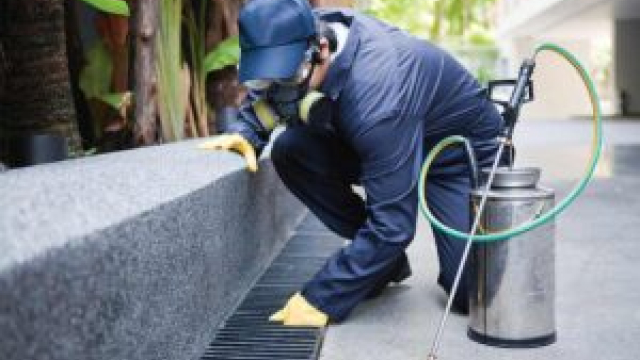Are you considering moving to Vietnam as an expat? Navigating the visa process might seem overwhelming, but with the right information and guidance, it can be a smooth and successful journey. In this blog post, we will explore the key documents and requirements for a successful visa application, provide tips for navigating the visa interview process, discuss common challenges and obstacles you may encounter, and offer advice on seeking professional assistance to make the process easier. Additionally, we will highlight the importance of staying informed about changes in Vietnam’s immigration policies. By the end of this article, you will feel confident in successfully navigating the visa process in Vietnam.
Introduction: Why Move to Vietnam as an Expat?
Moving to a new country as an expat can be an exciting and life-changing experience. Vietnam, in particular, offers a unique blend of vibrant culture, stunning landscapes, and a booming economy that makes it an attractive destination for many foreigners. But why should you consider moving to Vietnam as an expat? Let’s explore some compelling reasons. Firstly, Vietnam boasts a low cost of living compared to many Western countries. This means that your hard-earned money can go much further here, allowing you to enjoy a comfortable lifestyle without breaking the bank.
From affordable housing options to inexpensive transportation and delicious street food, living in Vietnam can offer excellent value for your money. Secondly, the country’s warm climate is another major draw for expats looking to escape cold winters or unpredictable weather elsewhere. With its tropical climate, Vietnam enjoys year-round sunshine and pleasant temperatures that make outdoor activities and exploring the country’s natural beauty a joy. Furthermore, Vietnam’s rich cultural heritage and friendly locals create a welcoming environment for expats.
Key Documents and Requirements for a Successful Visa Application
When it comes to moving to Vietnam as an expat, one of the most crucial aspects is understanding and successfully navigating the visa process. Key documents and requirements play a vital role in ensuring a smooth visa application. To begin with, expats must possess a valid passport with at least six months of validity remaining. Additionally, they are required to provide a completed visa application form along with recent passport-sized photographs. Depending on the type of visa being applied for, specific supporting documents such as employment contracts, business licenses, or proof of financial stability may also be necessary.
It is important to note that certain visas may have additional requirements, so thorough research and consultation with immigration authorities or professionals is highly recommended. Meeting these key document and requirement criteria will significantly increase the chances of a successful visa application and expedite the process overall. To navigate the visa interview process in Vietnam, expats should come prepared with all relevant documents and be ready to answer questions about their purpose of visit, length of stay, accommodation arrangements, and financial situation. Demonstrating genuine intentions and providing accurate information during this interview stage is essential for successfully securing a visa. Despite careful preparation, challenges or obstacles may still arise during the visa process in Vietnam.
Common issues include language barriers when dealing with immigration authorities or delays due to administrative procedures. However, by staying patient and proactive throughout these challenges, expats can overcome them effectively. For those who find themselves overwhelmed by the complexities of Vietnam’s immigration policies or unsure about how to proceed with their visa applications, seeking professional assistance from an immigration lawyer or agent can prove invaluable.
Navigating the Visa Interview Process
Navigating the Visa Interview Process can be a crucial step in successfully obtaining a Vietnam Visa for Colombian Citizens to move to Vietnam as an expat. The visa interview is typically the final stage of the application process, where applicants have the opportunity to demonstrate their eligibility and intention to comply with Vietnam’s immigration policies. To ensure a smooth and successful interview experience, it is essential for expats to be well-prepared and familiarize themselves with the process. Firstly, it is important to gather all necessary documents and requirements prior to the interview.
This may include a valid passport, completed visa application form, proof of financial stability, employment contract or business registration documents if applicable, as well as any other supporting documents required by the specific type of visa being applied for. During the interview itself, applicants should approach it with confidence and professionalism. It is essential to dress appropriately and arrive on time at the designated location. The interviewer will likely ask questions regarding your purpose of stay in Vietnam, your intended activities while there, and how long you plan to reside in the country.
It is important to provide clear and concise answers while demonstrating genuine intentions. Common challenges during the visa interview process may arise due to language barriers or cultural differences between expats and Vietnamese officials.
Overcoming Common Challenges and Obstacles during the Visa Process in Vietnam
Overcoming Common Challenges and Obstacles during the Visa Process in Vietnam Moving to Vietnam as an expat can be an exciting adventure, but navigating the visa process can sometimes be a daunting task. Understanding and overcoming common challenges and obstacles that may arise during this process is crucial to ensuring a smooth transition into your new life abroad. One of the most common challenges expats face when applying for a visa in Vietnam is gathering all the necessary documents and meeting the specific requirements.
It’s important to carefully review the list of required documents provided by the Vietnamese immigration authorities and ensure that you have everything in order before submitting your application. This may include proof of employment or business registration, financial statements, medical certificates, or even criminal background checks. Another obstacle that expats often encounter is language barriers. The visa application process in Vietnam typically involves completing forms and attending interviews conducted in Vietnamese.
For those who are not fluent in the language, this can pose significant difficulties. It’s advisable to seek assistance from local translators or interpreters who can help you accurately fill out forms and communicate with immigration officers during interviews. Furthermore, delays or extended processing times are not uncommon during the visa application process in Vietnam. Patience is key when facing these situations, as bureaucratic procedures can sometimes take longer than expected. It’s important to plan ahead and submit your application well in advance to allow for any potential delays. Additionally, changes in immigration policies can also present challenges for expats seeking visas in Vietnam.
Seeking Professional Assistance: Using an Immigration Lawyer or Agent
Seeking Professional Assistance: Using an Immigration Lawyer or Agent Navigating the visa process in Vietnam can be a complex and overwhelming task, especially for expats who may not be familiar with the country’s immigration policies and procedures. While it is possible to handle the visa application process on your own, seeking professional assistance from an immigration lawyer or agent can greatly simplify the process and increase your chances of success. An immigration lawyer or agent specializing in Vietnamese immigration laws and procedures can provide invaluable guidance throughout every step of the visa application process.
They have a deep understanding of the requirements and documentation needed for each type of visa, ensuring that you submit a complete and accurate application. This can help avoid unnecessary delays or rejections due to missing or incorrect information. Furthermore, an experienced immigration professional will be well-versed in navigating potential challenges and obstacles that may arise during the visa process. They can provide advice on how to address any issues that may come up, such as clarifying specific requirements or addressing concerns raised by Vietnamese authorities.
Staying Informed: Keeping Up with Changes in Vietnam’s Immigration Policies
Staying informed about changes in Vietnam’s immigration policies is crucial for expats who are planning to move to the country. As regulations and requirements can evolve over time, it is essential to stay up-to-date with any amendments or new guidelines that may affect the visa process. By staying informed, expats can ensure a smooth transition and avoid any potential complications or delays. There are several ways to keep abreast of changes in Vietnam’s immigration policies. One approach is to regularly check official government websites, such as the Ministry of Foreign Affairs or the Immigration Department, for updates on visa regulations. These websites often provide detailed information on visa categories, application procedures, and any recent policy changes. Another valuable resource for staying informed is online expat forums and communities.
Conclusion: Successfully Navigating the Visa Process in Vietnam
Successfully navigating the visa process in Vietnam is crucial for expats looking to move and work in the country. With the right knowledge and preparation, obtaining a visa can be a smooth and efficient process. Throughout this blog post, we have discussed various aspects of moving to Vietnam as an expat, including key documents and requirements for a successful visa application, navigating the visa interview process, overcoming common challenges and obstacles during the visa process, seeking professional assistance through an immigration lawyer or agent, and staying informed about changes in Vietnam’s immigration policies.
By following these steps and being well-informed about the visa application process, expats can increase their chances of securing a visa and starting their new life in Vietnam. However, it is important to note that each individual case may vary, so it is always recommended to consult with professionals or relevant authorities for personalized advice based on specific circumstances. Moving to Vietnam as an expat can be an exciting adventure full of opportunities, and successfully navigating the visa process is an important step towards making that dream a reality.



